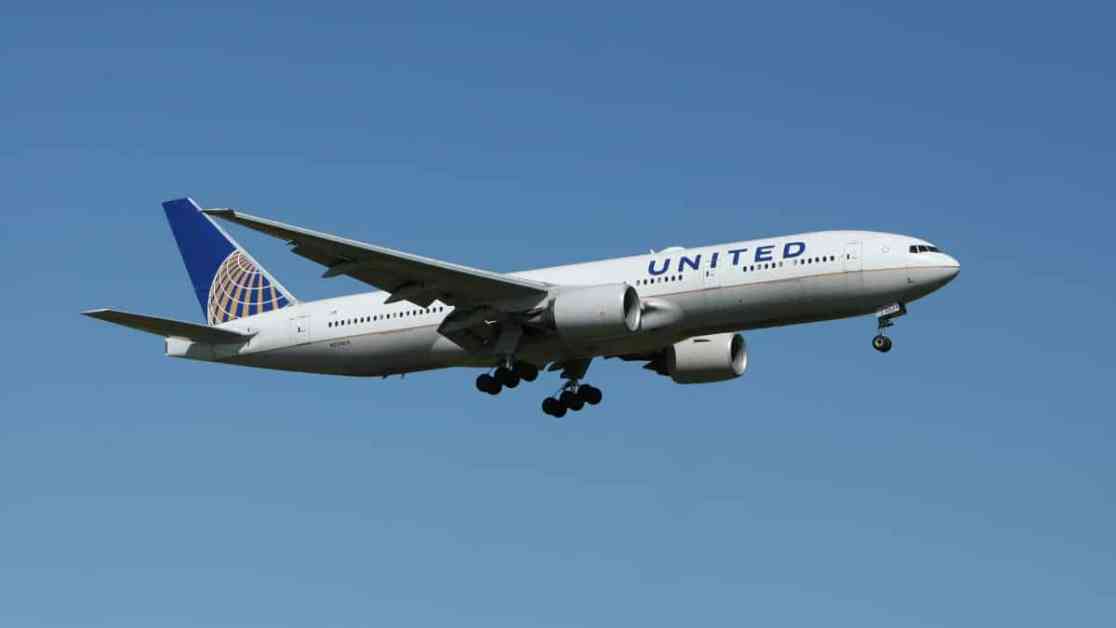United Airlines Faces Backlash Over Threats to Remove Passengers for Crew Seating Dispute
Passengers aboard United Airlines flight 923 from Los Angeles to London found themselves in a tense situation when they were allegedly threatened with removal from the flight if they did not give up their business class seats. The incident, which occurred on Sunday, has sparked outrage among travelers and raised questions about airlines’ treatment of passengers in such situations.
Crew Rest Area Complications
The issue arose when United Airlines encountered problems with the crew rest area on the flight. The crew bunk facilities were reportedly inoperational, leaving the airline in a bind as the crew needed adequate rest to perform their duties during the ten and a half-hour journey. According to FAA guidelines and the United flight attendant contract, crew members must have sufficient rest on long-haul flights to ensure the safety and efficiency of the flight.
Passengers were caught off guard when gate agents informed them of the situation and requested volunteers to give up their business class seats for the crew. Normally, airlines reserve specific seats in the Business Class cabin for crew rest, but in this case, passengers had already boarded the flight before the issue was discovered. With no spare seats available, gate agents had to ask passengers to voluntarily relocate to the extra legroom coach.
Threatening Tone and Offers of Compensation
The manner in which the request was made by the gate agents reportedly came across as threatening to passengers. They were warned that the entire plane would be deplaned if no one volunteered to give up their seats. One passenger described the communication as a threat, both in wording and tone, adding to the tension and discomfort of the situation.
To incentivize passengers to volunteer, United Airlines initially offered $1,500 in travel credits and 75,000 miles as compensation for the inconvenience. However, when no one came forward, the offer was increased to $2,500 in credits. Eventually, three passengers volunteered to move, leading to a 44-minute delay in the flight.
Similar Incidents and Passenger Discontent
This is not the first time United Airlines has faced backlash over seating disputes with passengers. A similar incident occurred in India, where passengers in the first seven rows of the business class cabin were asked to move to coach due to a weight and balance issue. The abrupt request left many passengers feeling frustrated, especially those who were already settled in with blankets and movies.
The rearrangement process took longer than expected, resulting in the cancellation of the flight. These incidents highlight the challenges airlines face when unexpected issues arise, and the delicate balance they must maintain between crew needs and passenger comfort.
United Airlines Response and Future Considerations
In response to the recent backlash, United Airlines has stated that they are reviewing their procedures for handling crew rest area complications to prevent similar incidents in the future. The airline acknowledges the inconvenience caused to passengers and is working to improve communication and resolution in such situations.
Moving forward, it is crucial for airlines to prioritize transparent communication with passengers and ensure that their needs are taken into account when addressing operational challenges. By fostering a culture of empathy and understanding, airlines can build trust and loyalty among their customers, even in difficult circumstances.
Passengers’ Rights and Airline Policies
Passengers have raised concerns about their rights and the policies governing seating arrangements on flights. While airlines have the authority to ask passengers to change seats for operational reasons, it is essential that they do so in a respectful and transparent manner. Clear communication and fair compensation are key to mitigating tensions and ensuring a positive experience for all travelers.
Industry Standards and Best Practices
As incidents like the one involving United Airlines continue to make headlines, the aviation industry must reevaluate its standards and best practices for handling crew rest area complications. Airlines should prioritize crew well-being while also considering the comfort and satisfaction of passengers. By implementing clear protocols and effective communication strategies, airlines can navigate such situations with professionalism and empathy.
Passenger Advocacy and Feedback
Passengers play a crucial role in holding airlines accountable for their actions and advocating for better treatment and services. By sharing their experiences and providing feedback, travelers can help shape industry practices and ensure that their rights are respected. It is essential for airlines to listen to passenger concerns and address them proactively to maintain a positive relationship with their customer base.
In conclusion, the incident involving United Airlines and its handling of the crew seating dispute serves as a reminder of the complex dynamics at play in the aviation industry. By prioritizing clear communication, respect for passengers’ rights, and a commitment to continuous improvement, airlines can navigate challenging situations with professionalism and integrity. As travelers, it is important to stay informed, voice our concerns, and work together to create a safer and more comfortable flying experience for all.
